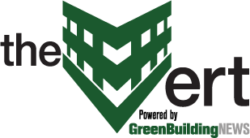Non-profit Launches Commercial Certification Program
PORTLAND, Ore. — Earth Advantage Institute (EAI) recently launched a new version of its commercial green building certification program, Earth Advantage Commercial (EAC). The new program will offer certification for commercial buildings smaller than 100,000 square feet, which accounts for 95 percent of all commercial structures. EAI is a nonprofit organization that offers educational resources such as certification programs and professional training in the green building sector. It also runs several certification programs for sustainable homes, communities and commercial offices.
The program will offer three levels of certification: Platinum, Gold and Silver. EAI believes builders and end users will find this program to be more simplified and hassle-free than other certification programs targeting buildings that fit into this category. The system will rate buildings based on their sustainability in five categories: energy, water, health, materials and land. EAI has formed an initial preferred partner group of architectural consultants on the West Coast to guide applicants through the certification process.
EAI created the new program to address the lack of streamlined options for developers, architects, and end users who want to be recognized for their efforts in building green structures, but don’t want to sign up for the massive undertaking in organization, paperwork, and time required by other certification programs. The U.S. Green Building Council’s LEED certification process has become particularly well known for being the most recognized green building standard, but also one of the most onerous in terms of the level of commitment required to attain certification.
The first Earth Advantage Commercial certification program began as part of Portland General Electric, certifying over 50 buildings, before the program became an entity all its own, forming the Earth Advantage Institute in 2005. The new commercial certification program built upon that original model with a pilot project launched in 2010, involving 10 buildings that went through the new process.
“The success of our EAC pilot in Oregon, along with the tremendous interest we’ve received from across the country, is a clear indication that there is a demand for green building certification options for small commercial buildings. EAC is fully prepared to meet that demand,” said Diana Fischetti, the commercial program manager at EAI.
The new certification system has already been recognized by several public entities in Oregon. The Oregon Department of Energy Conservation’s Energy Incentive Program will offer tax credits to projects pursuing EAC Gold or Platinum Certification. New city-owned buildings in the Portland metropolitan area will be required to achieve EAC Gold certification if they fall in the 5,000-70,000 square feet range. The Portland Development Commission Green Building Policy will require that developers receiving financial assistance from the commission ensure their projects meet LEED or EAC standards. The City of Eugene Green Building Incentive Program will offer a streamlined version of its permitting process and inspections to projects seeking EAC certification.
EAI’s goal is to give builders more options for designing and gaining recognition for green projects, not to replace other certification programs. Accordingly, the non-profit will continue to offer certificate programs and other educational resources related to LEED and ENERGY STAR certification.
